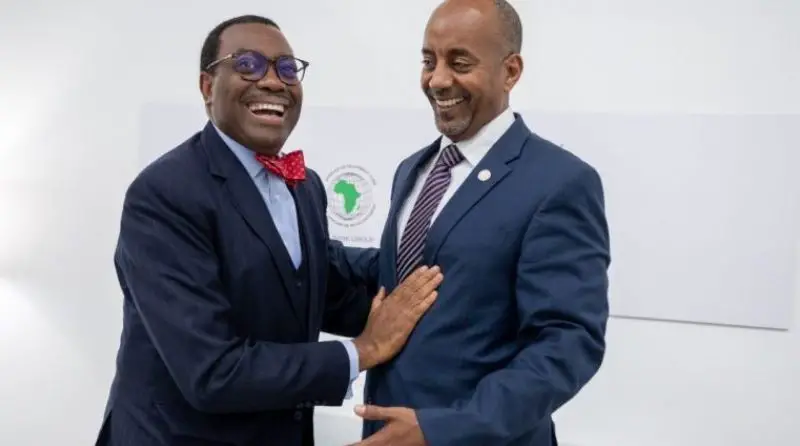Africa is expected to suffer more damages due to Climate Change and the cost has been estimated to rise to U$415bn annually by 2030.
According to Hala El-Said, Egypt’s Minister of Planning and Economic Development, the losses currently amount to about U$250-300bn due to natural disasters resulting from climate change.
The ongoing Climate Conference is evaluating the progress made by the world in implementing mechanisms to confront climate change.
Already some pledges are being made at the conference with the aim of financing efforts to tackle climate change challenges.
Muhammad Al-Jasser, head of the Islamic Development Bank Group, revealed on Wednesday that the bank contributed about U$13bn from the U$24bn package of financing pledged by the Arab Coordination Group.
The funds will be provided for green projects for the benefit of the countries supported by the Bank in the development process, which number about 57 countries.
The Bank is intensifying climate action, which reached 31% in 2021, while the Bank has set an ambitious target to be at least 35% of its climate financing by 2025.
Meanwhile, African Development Bank (AfDB) and the Eastern and Southern African Trade and Development Bank (TDB) have united to launch a unique financial instrument to catalyze financing for sustainable development on the continent.
The African Development Bank on Wednesday announced an investment commitment of U$15m in TDB’s Class C Green+ Shares.
This is the first equity instrument of its kind to provide a pathway for institutional investors to support climate action with risk capital, with each dollar invested to be leveraged four times into qualifying projects and transactions.
More broadly, the shares are designed to accelerate TDB’s financial innovation and contributions to the Sustainable Development Goals (SDGs), the African Union’s Agenda 2063 and the Paris Agreement on Climate Change.
“This is a great innovation that will catalyze public development banks and other financial institutions to do more in expanding climate financing and green growth,” said, Akinwumi Adesina, African Development Bank Group President.
He added that African Development Bank Group will mobilize investment partners for the Trade and Development Bank and will help to replicate this with other financial institutions. “We want to green Africa’s financial systems.”
The continental bank took the lead and became the first investor in Class B shares. The launch of Class B has been a huge success. Today, TDB counts 20 institutional investors as part of its shareholder community, which now represents about a third of TDB’s total paid-in shareholder capital.
“We are grateful for the pioneering role of the African Development Bank in the launch of this novel instrument, which is already generating much interest from other investors,” said Admassu Tadesse, TDB Group President Emeritus and Managing Director.
He said that Building on the successful model of green bonds, this catalytic, paid-in, equity investment will bolster TDB’s capital position and enable us to step up our impact in the climate space. “Together, we are making African capital work for Africa’s development, while delivering competitive returns.”




















